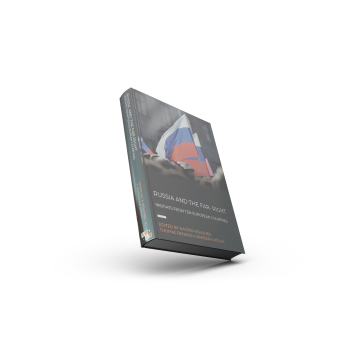ICCT has been exploring the main mechanisms of Russia’s support for racially or ethnically motivated violent extremist (REMVE) groups or individuals in Europe. In doing so, it will investigate direct support (e.g. financial support) as well as indirect support (e.g. inspiration, or spreading disinformation or misinformation through social or traditional media) for far-right extremism.
To do so, it investigated Russia’s direct as well as indirect support to far-right extremists across 10 European countries. Tapping some of the world’s most authoritative experts on extremism and Russian influence, this book systematically and thoroughly reviewed Russia’s relationship with diverse far-right actors in: Austria, The Czech Republic, France, Germany, Hungary, Italy, Poland, Serbia, Slovakia, and Sweden.
Chapters on each country delineated two case studies – one non-violent and the other violent in nature. These evidenced Russia’s growing infiltration of the far-right milieu in Europe, which is used for the purposes of Moscow’s “political warfare” waged on the broader West, and made recommendations on how Russian influence could be addressed. Moreover, ICCT experts offered regional threat analyses, risk assessment and recommendations, as well as a comparative analysis and overall assessment of how Russia supports the far-right movement in Europe.
The edited volume “Russia and The Far Right: Insights from Ten European Countries” was the result of these efforts.
ICCT published this cross-cutting and detailed analysis as an open-access book to disseminate insights widely.
This will raise awareness among European and North American policymakers about the scope and tools of Russian influence on the far right in Europe, and as such their ability to assess and respond to such risks.
Highlights
About the project
The goal of this project is to show where, how and to what extent Russia is influencing far right actors in Europe, with a particular focus on racially or ethnically motivated extremists (REMVE). ICCT’s efforts are providing:
- Original evidence-based chapters that contribute to understanding of Russia’s influence on the European far-right landscape;
- Regional threat analyses, risk assessment and recommendations, and a separate chapter offering a comparative analysis and overall assessment;
- Increased understanding of the ways in which Russia supports far-right movement in Europe, with a particular attention to the risk of violent extremism.
The country-by-country assessments that ICCT is making demonstrates what forms of support can be observed in which contexts. This will raise the awareness of policy-makers of the nature of the problem in these countries.
The overall analysis, moreover, will instil policy-makers with a more general understanding of the factors that shape Russian support. Understanding the relationship between contextual factors and the shape of Russia’s support to the far right, as well as what factors make what kind of Russian support for the far right more likely, can help policymakers assess and mitigate risk of interference.
The book is available for free here.
Partners








